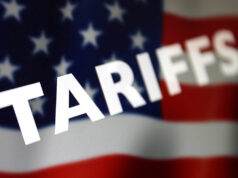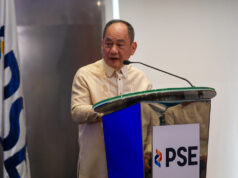Car importers question petition for safeguards
By Jenina P. Ibañez, Reporter
THE LEGAL representatives of industry groups affected by safeguard duties on car imports are questioning the validity of the petition for the protection measure filed by a labor group.
The Department of Trade and Industry (DTI) applied safeguard duties after it confirmed the Philippine Metalworkers Alliance’s (PMA) claim that employment in the industry sank after imports spiked.
The Safeguard Measures Act or Republic Act No. 8800 allows domestic producers to ask the government to conduct an investigation into their import competitors if they claim to have been injured by excessive imports.
“PMA is a national union of automotive, iron, and steel workers in electronics and electrical sectors. They do not represent the domestic industry,” Rodolf C. Britanico, the legal representative of the China Chamber of Commerce for Imports and Export of Machinery and Electronic Products, said at a conference with the Tariff Commission on Wednesday.
The Tariff Commission is conducting its own investigation on the duties and will submit a recommendation to the DTI.
The Safeguard Measures Act, Mr. Britanico said, covers domestic producers, which means that the labor group cannot file the petition.
Tariff Commissioner Ernesto L. Albano, however, said that the Trade department could conduct an investigation on its own accord, regardless of petitioner.
“So probably what happened was they thought the presentation of the labor unions which really affects them because of loss of employment, the DTI must have felt that in fact there is a need to investigate,” he said.
But Mr. Britanico maintained that domestic producers like Toyota Motors Philippines and Mitsubishi Motors Philippines Corp. opposed the application for safeguards.
“Down the line, there should be inspection, for example, of factories. There should be submission of data. I was wondering how PMA would be able to do that,” Mr. Britanico said.
Toyota and Mitsubishi have car assembly operations in the Philippines, and also import from overseas.
The Mitsubishi Philippines representative during the conference expressed the company’s opposition to the safeguard measures.
“Given there is an issue on the petitioner and we also share the concern regarding the presentation, your honor, on evidence of the PMA, may we ask for clarification on how they will be conducting it? … How will they be presenting documents or evidence on their end considering that they are not a domestic producer?” Jacqeline Ann A. Tan, who represents Mitsubishi Philippines, told the commission.
The domestic industry applying for safeguard measures are usually required by the government to submit a plan to adjust to competition.
Given that the domestic manufacturers oppose the measures, Eric R. Recalde, another Mitsubishi Philippines legal representative, asked if they will be required to submit such a plan as well.
He questioned PMA’s ability to present information and an adjustment plan as part of the domestic industry.
“The PMA is required to submit the adjustment plan and several data, being the petitioner,” Tariff Commissioner Marissa Maricosa A. Paderon said, adding that all concerns mentioned have been noted by the commission.
The DTI applied provisional duties in the form of a cash bond of P70,000 per passenger car unit and P110,000 per light commercial vehicle unit to protect domestic jobs. The duties are in effect for 200 days while the Tariff Commission conducts its own investigation.



